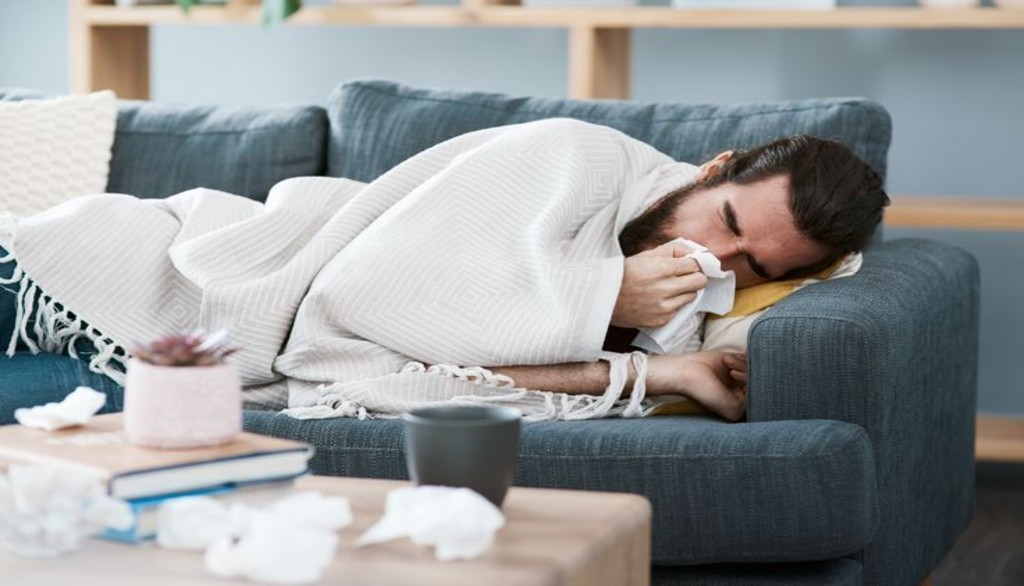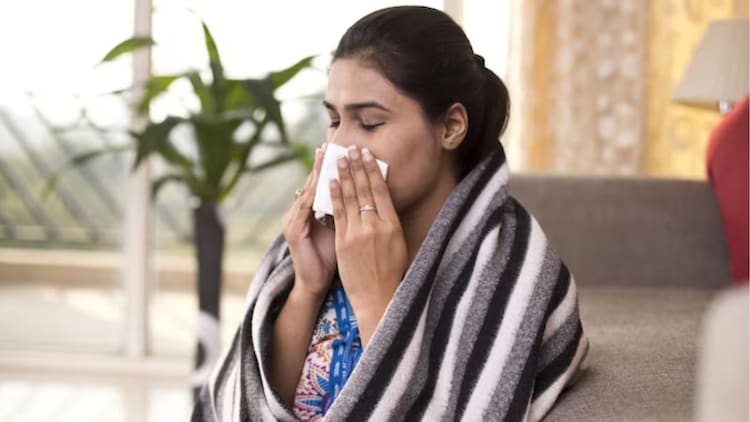As the weather turns colder after Diwali, hospitals across Bihar and North India are seeing a sharp rise in cases of cough, cold, sore throat, fever, and breathing troubles. Doctors say this seasonal spike is not just due to “catching a chill” — but a combination of pollution, allergens, dry air, and fast-spreading winter viruses.
1. More Pollen, Dust, and Mold in the Air
According to Dr. Vikas Mittal, Pulmonologist at CK Birla Hospital, cool winds in early winter stir up pollen grains, dust particles, and fungal spores.
These tiny particles enter the nose and lungs and trigger irritation, especially in:
●Asthma patients
●People with sinus infections
●Those who already have allergies
“Even perfectly healthy people can feel sneezing, runny nose, dry cough, or itchy throat due to this rise in allergens,” he explains.
2. Pollution + Allergens = Double Trouble
Winter air is usually heavier, so pollutants remain trapped closer to the ground. In cities like Patna, Delhi, Kanpur, and Ranchi, vehicle smoke, industrial dust, and burning waste mix with these allergens.
This forms a toxic air layer, which can worsen asthma, COPD, and bronchitis. Doctors say this combination causes more breathing difficulty than pollution alone.
3. Dry Air Weakens the Body’s Defence System
Winter air has less moisture, and this dryness affects the nose and throat.
The natural mucus layer in our airways acts as the first shield against viruses and bacteria.
When this layer dries:
◆Germs enter easily
◆Infection spreads faster
◆Cough and throat irritation become common
Children, elderly citizens, and diabetic or heart patients are most at risk.

4. Viruses Spread Faster in Cold Weather
Studies show that cold and dry air helps viruses survive longer in the environment.
So, when someone coughs or sneezes:
The virus remains in the air for a longer time
Infection spreads quickly in homes, schools, and public transport
This is why flu, viral fever, and cold cases jump suddenly during early winter.
How to Stay Safe This Season
Doctors advise:
◆Wear N95/Anti-Pollution masks when outdoors
●Drink warm water and stay hydrated
◆Do steam inhalation once or twice daily
◆Wash hands frequently
◆Use nasal saline drops to keep airways moist
◆Keep home windows closed during high pollution hours
Winter brings comfort — but also new respiratory risks.
Experts emphasize awareness, protection, and early care to stay healthy throughout the season.


